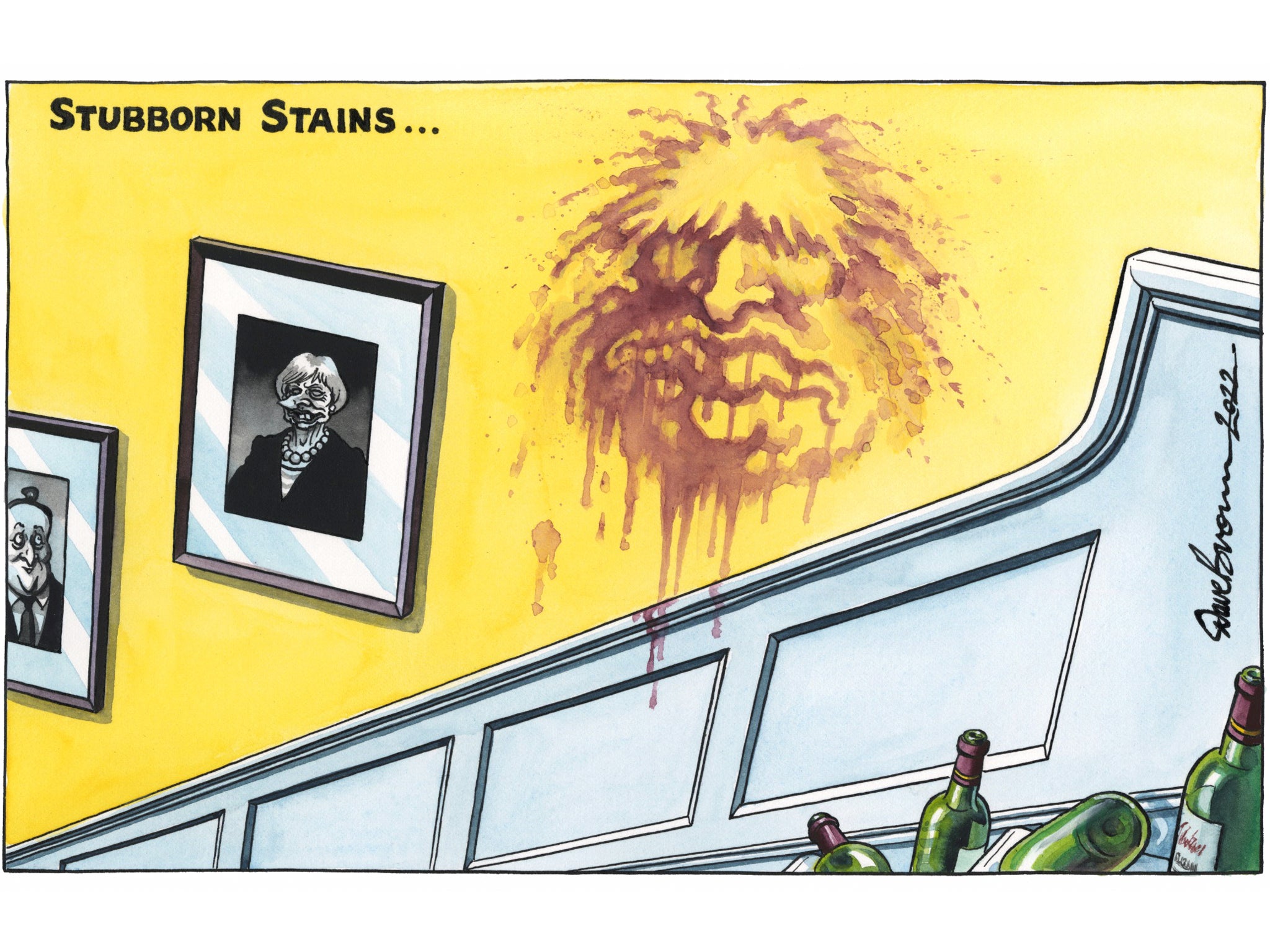How long can he last? Though Boris Johnson has his implacable enemies and kamikaze devotees among his MPs, the emerging consensus seems to be that he is probably safe until the party conference in the autumn, though that jamboree would not seem to be an obvious setting for a coup.
For his own part, the prime minister told his cabinet during a brief photo call that he thinks he can now “draw a line” under questions about his leadership. That is as deluded as his remarkable statement in the post-vote television interview that he had scored an “extremely good” result. He looked dazed, as if suffering from concussion after being mugged by his backbenchers. At any rate, he will be lucky to survive until the autumn.
There are a number of critical challenges ahead of him in the coming weeks. The two by-elections, in Wakefield and in Tiverton and Honiton, are especially dangerous for Mr Johnson. There seems every chance that he will lose at least one (Wakefield), quite possibly both – and will see historic swings away from the Conservatives in both seats.
An additional peril facing Tory MPs in marginal seats will also emerge – the return of the kind of tactical voting among opposition parties that inflicted such devastating damage to Conservative fortunes in the general elections of 1997 and 2001. For the first time in two decades, the Labour Party, the Liberal Democrats and the Greens are all relatively strong and their supporters so appalled by Johnson that they will “lend” their vote in an effort to get rid of him. But the main conclusion that will be drawn from the results will be the obvious one: that Mr Johnson is repellent to all kinds of voters, including Leave voters and otherwise loyal Conservatives.
Depending on the scale of the swings, the by-elections are likely to provoke panic, as they have so often for all parties in the past. The politicians like to dismiss them as mid-term blues, and it is true that they can be a poor guide to a subsequent general election, as in the Thatcher era – but by no means always. Dramatic by-election losses presaged the end of Conservative rule in 1997, 1974 and 1964. Losing seats on a swing of 10 or 20 per cent is not a good omen. On the contrary, for new and younger MPs looking to embark on a long ministerial career or simply hang on to their jobs, Mr Johnson will appear to be a clear and present danger to their aspirations, and the instinct for self-preservation is bound to kick in.
Aside from that, the prime minister faces a bruising encounter with the Commons liaison committee, a panel of senior parliamentarians of all parties, and more searching questions about whether he lied to parliament during the Commons privileges committee investigation into those allegations – conventionally a resignation matter. The select committees may well take up unanswered accusations about the parties in the Johnsons’ flat not investigated by the police or Sue Gray, and the prime minister will undergo a no doubt excruciating cross-examination.
To keep up to speed with all the latest opinions and comment sign up to our free weekly Voices Dispatches newsletter by clicking here
In due course the privileges committee will inevitably criticise his record, and may well censure him for not being completely open and transparent in his answers to the Commons and his tardiness in correcting the record. That would not only be another unwelcome “first” for a serving prime minister, but would open up the possibility of a recall petition and forced by-election in his own Uxbridge and South Ruislip seat, now a marginal, should the prime minister decline to do the honourable thing and stand down.
Further gaffes, embarrassments, scandals and more dither and delay may also be assumed in the near future, because that’s just what happens when Mr Johnson is around. Those who seek a quiet life or political vision should shop elsewhere. All will prompt more calls for him to go and further expressions of no confidence.
So the chances are that Mr Johnson will “move on” – but only to the next chapter in his leadership crisis. The confidence vote did not settle anything, and left Mr Johnson’s leadership in purgatory. He is too strong to be removed – but too weak to lead. Although the rules state that Mr Johnson is “safe” for a year, the rules can easily be rewritten by a nervous parliamentary party facing a wipeout at the next election. It is only a matter of time before more of his MPs or his cabinet decide they are better off without him. The country came to that conclusion some time ago.




Join our commenting forum
Join thought-provoking conversations, follow other Independent readers and see their replies
Comments